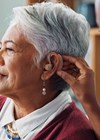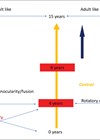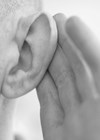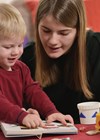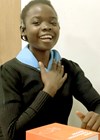Audiology features
Aligning hearing and cognitive healthcare in older people
Published in print under the titleHearing care and dementia: professional insights on the new Lancet Commission findingsThe Lancet Commission on ‘Dementia prevention, intervention and care: 2024 report’ highlights a list of potential modifiable factors to reduce dementia risk. As with...
Balance and vestibular disorders in children
Discover the world of paediatric vestibular assessment and management from the team at Alder Hey Children’s Hospital, which is revolutionising services in this field. Dizziness and balance problems generate significant morbidity in children of all age groups. Vestibular disorders are...
Commentary: dementia, hearing loss, and the danger of professional rabbit holes
The Lancet, a world-leading general medical journal, has a global impact. Its commissioned report into dementia prevention, intervention and care has been cited over 6000 times and has further been reviewed and updated in 2020 and now 2024. Here, Profs...
The changing landscape for hearing loss therapeutics: novel advances of gene and cell therapies
Recent years have seen advances in hearing loss therapeutics, with novel treatments trialled in humans, and others nearing promising first-in-kind clinical trials. First successful clinical trials for a specific form of genetic hearing loss Very exciting news has emerged in...
Mindfulness and tinnitus: a path to peace in the present
How does training the mind to be present in the here and now help patients with troublesome tinnitus? James Jackson discusses mindfulness and its place in tinnitus management. Although definitions can be more complex, tinnitus is the perception of sound...
In conversation with Sam Lear, BAA President: leading audiology forward
Dr Samantha Lear is the current British Academy of Audiology President, and Senior Audiology Policy Advisor at the National Deaf Children’s Society. With reviews ongoing in paediatric audiology in England and Scotland, Sam is ideally placed to lead the profession....
Audiology support for Philippine call centre employees
Call centre employees face unique challenges that impact their hearing health. BPO companies are implementing initiatives in the Philippines to safeguard their auditory wellbeing. The Business Process Outsourcing (BPO) industry in the Philippines is a dynamic and rapidly growing sector....
Addressing the non-use of hearing aids
We all know non-use of hearing aids occurs, but why, and what can we do about it? Numerous studies have investigated the challenges surrounding the underutilisation of hearing aids, examining factors such as reluctance to seek assistance, the impact of...
Why and how to assess digital literacy of older adults with hearing loss
Assessing digital literacy in older adults with hearing loss is vital for equitable care. The new DL-2Q tool quickly measures such skills, ensuring tailored support and better outcomes. Digital literacy and its importance When an older patient walks into your...
Hyperacusis and autism spectrum disorder
Several different auditory deficits have been found to be co-morbidities of ASD. This article reviews literature with respect to the relationship between hyperacusis and ASD. Autism spectrum disorder (ASD) can be characterised as a neurodevelopmental condition that is marked by...
Deafness impact on child development
Deafness can affect multiple aspects of a child’s development. This article explores these impacts and underscores the vital role audiologists play in early intervention. As an audiologist, learning and understanding the impact of deafness on a child’s development was an...
Hear Glue Ear - affordable bone conduction and microphone kits
Glue ear is a very common problem in children. This article explores a simple and affordable solution to help overcome some of the challenges it can cause. Background Glue ear (also known as otitis media with effusion – OME) is...


